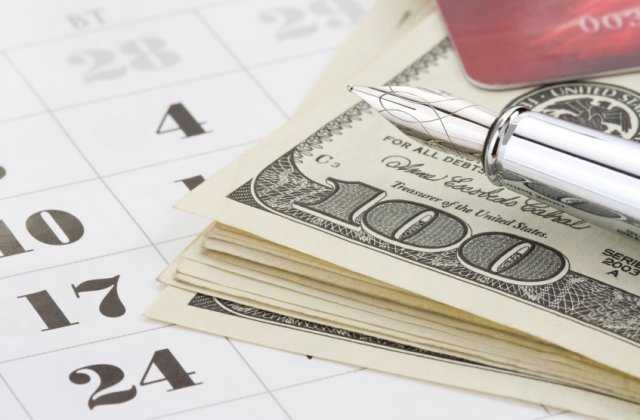
Retirement is meant to be a reward after decades of hard work and focused saving. The last thing you might be thinking of after retiring is heading back to the workforce but for some Americans, it is reality.
Mounting medical bills may require some seniors to go back to work in their 60s or even beyond. The Bureau of Labor Statistics estimates that the typical 55- to 64-year-old spends 8.8 percent of their annual income on health care. Once they reach age 65, it climbs to 12.2 percent.
In some instances, it's a too-small nest egg that leaves retirees looking to fill the income gap. An analysis from the National Institute on Retirement Security found that 65 percent of American households are at risk of falling short in retirement . The mean retirement savings for households aged 56 to 61 is less than $164,000, according to data from the Economic Policy Institute, far short of the $1 million or more that industry experts recommend.
[See: 12 Great Things About Retirement .]
Regardless of the reason, seniors who are headed back to work will need to take a second look at their finances, taking into account how working again may affect their short- and long-term financial future.
Start with your budget. Gary Swim, a retirement planner with Swim Retirement in Wichita, Kansas, advises retirees re-entering the workforce to look beyond their paychecks.
"If you're considering going back to work you have to remember that although you'll be making money, there are new expenses that you may need to consider as well," Swim says.
He points to increased costs for gas, food and workplace attire as some of the expenses retirees need to factor in. Swim also cautions seniors to think about the tax implications of going back to work.
"Your new income will be subject to income and payroll taxes. When you combine that with your existing income, it may alter your tax situation," Swim says.
He suggests taking the time to crunch the numbers and do the 'what if' planning before going back to work.
Scott Hanson, a senior partner and co-founder of Hanson McClain Advisors, headquartered in Sacramento, California, says retirees should keep a watchful eye on their spending once they're back on the job.
"One of the big dangers with someone going back to work after retirement is that they'll increase their standard of living to a point where they'll never be able to retire again," he says. "Once they re-enter the workforce, they need to be really careful about how they budget."
Check your withdrawal rate. When you have money coming in from employment, you have to decide whether it makes sense to keep pulling funds out of your retirement savings. Stuart Ritter, a senior vice president with PNC Wealth Management offers a relatively simple formula for determining how much of your savings you may need.
"A good starting point is to plan on withdrawing 4 percent of your balance in the first year of retirement, but if you're going back to work, you can use your new income instead of having to tap your savings," Ritter says. "The easiest approach is to simply subtract your income from what you would have withdrawn and only take out the remainder."
Sandy Young, founder of SY Financial Group in Hampstead, Maryland, acknowledges the importance of factoring longevity into your calculations.
"Making that nest last is crucial," Young says.
She also points out that where you have your retirement savings invested impacts how far the money will go.
[See: 8 Cheap ETFs That You Won't Regret .]
"The older you get, the more money you should have in a safe environment. The 4 percent withdrawal rate is being challenged in today's economy," Young says. "In the face of high fees, low bond yield and high stock market valuations, the safe withdrawal rate is considerably lower for new retirees in 2016."
Take advantages of opportunities to add to your savings. If you're making enough to cover expenses and still have something left, determine the best way to use that remainder . Eric Palmer, a financial educator with Outlook Advisors in Fountain Hills, Arizona, advocates contributing to your employer's 401(k) plan, if one is available.
"If the new employer has a strong plan, with a match and conservative investment options, participating may be a good strategy," Palmer says.
He does, however, urge retirees to think about the time frame before making a move.
"If you only plan to work again for a short time to accumulate additional savings, the level of risk needs to be strongly considered when choosing where to invest," he says.
Manuel Andrade, senior vice president of wealth management at People's United Wealth Management in Bridgeport, Connecticut, reminds retirees to do their homework.
"In most cases, you should be able to contribute to your employer's qualified retirement plan as long as you're working," Andrade says. "The ability to make annual contributions to an IRA, however, depends on your income and filing status."
He proposes a Roth IRA for seniors who expect to be in the same or a higher tax bracket when they do finally retire permanently, since distributions would be completely tax-free at the federal level.
Evaluate your Social Security situation. Going back to work after you've already signed up for Social Security can potentially reduce those benefits, something retirees need to be prepared for, Andrade says.
"If you're receiving Social Security benefits and you haven't reached full retirement age, some of your earnings may be subject to the earnings cap restriction. That could reduce or even eliminate your benefits, depending on how much you earn," Andrade says.
The good news is benefits that are withheld while you're working can be paid back out to you once you reach full retirement age. At that point, you'd be able to earn as much as you want, without your benefits being affected.
Swim emphasizes how taxes can impact retirees' Social Security outlook.
"Many people don't think their Social Security can be affected when they go back to work but they'll get penalized if they make too much money," he says.
Between 50 percent and 85 percent of Social Security can be taxed, based on your filing status and how much you earn. If you're working and receiving Social Security, that could result in an increased tax liability.
[Read: 9 Steps a Single Person Can Take for Retirement .]
Swim's advice to retirees who contemplating returning to work? "You really have to be aware of the tax implications on that additional income and decide what will work best for you."
Compare Offers
Compare Offers



Post a Comment